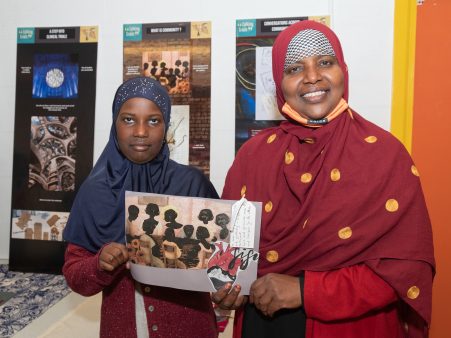Talking Trials: Including The Voices Of People From Minority Ethnic Communities In Health Research
5 July 2022
Populations recruited into clinical trials need to include diverse participants of different ages, sexes, races, and ethnicities to ensure wide applicability. Existing data shows people from ethnic minorities are included in clinical trials at rates lower than we would expect given their share of the population. Minority ethnic communities also face barriers to effective engagement in health research process in all stages of the research cycle including priorities setting as a result of low participation rates in clinical trials.

The Talking Trials project was set up as a partnership between the Centre for Trials Research and South Riverside Community Development Centre (SRCDC) and funded by the Welcome Trust via the ISSF3 Public Engagement Proof of Concept funding. The trusting partnership with SRCDC proved to be instrumental in bringing together a group of 13 co-researchers from minority ethnic backgrounds to discuss health research and explore the issues of underrepresentation in trials. The group met for 3 co-production workshops during the spring and summer 2021. The focus on co-production was a deliberate attempt to foster a network of individuals new to research to become involved as co-researchers and democratise research.
We worked with Catherine Lamont Robison, an artist and researcher specialized in applying art and creativity in medical learning who used participatory art methodologies to facilitate the group learning and to help overcome language barriers. We discussed clinical trials, what they are and why they are important. We explored perceptions and views on clinical trials whilst also engaging in art activities alongside these conversations.

The inclusive and democratic co-production enriched by the participatory art element provided a powerful means to introduce our co-researchers to clinical trials and health research, enabling them to create new insights and foster new relationships. With little or no knowledge of clinical trials at the beginning of the process, our co-researchers settled into an intimate and cohesive group, freely sharing their initial fears and mistrust towards clinical trials. As conversations progressed, these attitudes clearly shifted as our co-researchers have become open to participating in clinical research and also becoming involved in the research process itself.

Artwork produced during the workshops was incorporated by Catherine into an art exhibition with including quotes and pieces from the group to reflect our discussions and the themes identified (see Talking Trials panels below). In August 2021 we took the exhibition at the Riverside Festival where we had the opportunity to engage with the wider Riverside community. Close to 200 people passed through the Talking Trials tent at the festival and we also organized participatory arts activities for children under the supervision of Catherine.
Projects like Talking Trials can help diversify the research process itself as two of our co-researchers have commenced lay research partner roles within the Centre for Trials Research. One of them is Mashmooma Din, a project worker based in SRCDC. Here is Mashmooma’s reflection on her involvement with the Talking Trials project: ‘I have been involved with the Talking Trials project during the pandemic of Covid-19. It was first time in my entire life to be involved actively talking about medical trials. It has given me a depth insight about what is involved and how community members can have their say and be part of a bigger picture. I find the research project very useful, interesting and rewarding in terms of how the whole process worked. I have been asked if I would like to become a research partner for another study in the CTR. I am delighted to have this opportunity and be able to give my opinion and ideas which may represent the BME communities in Cardiff.’








- June 2024
- May 2024
- April 2024
- March 2024
- December 2023
- November 2023
- September 2023
- July 2023
- June 2023
- April 2023
- March 2023
- February 2023
- December 2022
- November 2022
- October 2022
- September 2022
- August 2022
- July 2022
- June 2022
- May 2022
- April 2022
- March 2022
- February 2022
- January 2022
- November 2021
- September 2021
- July 2021
- June 2021
- May 2021
- March 2021
- February 2021
- December 2020
- November 2020
- September 2020
- August 2020
- July 2020
- January 2020
- December 2019
- October 2019
- September 2019
- July 2019
- June 2019
- May 2019
- April 2019
- February 2019
- December 2018
- November 2018
- October 2018
- September 2018
- August 2018
- July 2018
- June 2018
- May 2018
- April 2018
- March 2018
- December 2017
- October 2017
- August 2017
- July 2017
- June 2017
- May 2017
- April 2017
- March 2017
- February 2017
- January 2017
- December 2016
- October 2016
- August 2016
- June 2016
- April 2016
- March 2016
- February 2016